Who Will Care for Your Dog after You're Gone?
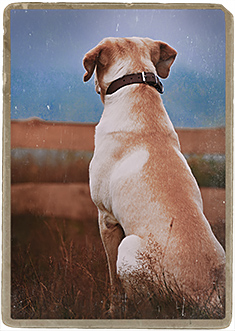
Although it’s not a topic any of us really want to think about, responsible dog parenting requires that we give some thought to what would happen to our dogs if one day we didn’t come home.
Most of us who have two-legged children have gone through the agonizing process of naming guardians to take the kids as a part of drawing up wills. Rarely, however, are the four-legged kids considered.
What’s the first step?
Hard though it may be, it really is easier if your dog precedes you to the Rainbow Bridge. However, since none of us really knows when we (or the dog, for that matter) will pass, it’s best to have a plan in place that takes into account the fact that you very well may go first. This plan should be in place from the day you bring the dog home, and should be revised as your circumstances change.
The first step is to consider what your dog is likely to need from a caregiver after you go. Do you have a very active dog? Your 97-year old Aunt Mabel, although sweet, may not be the right person to try to keep up with him.
A dog with special medical needs? Perhaps your college roommate – you know, the one who was always too hung-over to find clean matching socks – might not be the one who will pay attention to the details required for her care.
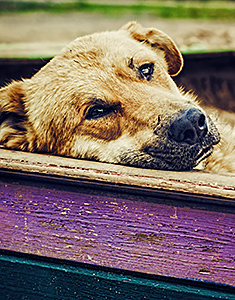
Once you have determined what your dog needs, you will next consider the cost of providing for those needs.
How will you fund your dog’s care after you go? Or will you expect the person who takes the dog to bear the expenses? You might consider setting aside a savings account or even designating a trust fund for the dog.
That’s not as funny as it sounds. You don’t have to be rich to set up a trust fund. You can even set up the trust now and leave it unfunded until your death, designating some of your life insurance proceeds to fund the trust.
Once you have designated someone to take the dog, make sure to put their name on the savings account or trust fund so they have access to the money when you are not around. You can make the account “payable on death” to the person if you’re worried they might “borrow” the money before they actually have the dog.
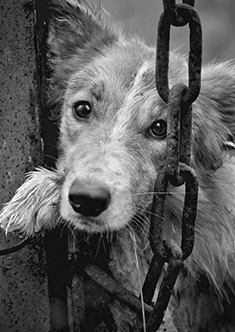
How do I ask someone to take my dog after I die?
Once you have determined your dog’s likely needs and established how they will be paid for, it’s time to start thinking about who makes the most sense as a substitute caregiver. Obviously, you are looking for someone who loves dogs as much as you do, preferably someone who is close enough to you that your dog will have some familiarity with the person.
The best way to ask is just to come out with it. You might say something like this, “You know, I was thinking about what would happen to Ajax after I die, and I wondered if you might be willing to take him. Not that I’m expecting it to happen anytime soon, I just want to have a plan for just-in-case.”
If you need a way to begin the conversation, start by telling the person you just read this article and thought it was time for you to come up with a plan.
You might go on to explain that you will set aside some money to help with expenses or to explain your dog’s special needs. You might also want to tell the person why you decided to ask him or her specifically.
Something like, “Honey already loves you, and I know you’ll take good care of her, just like you do with your own dogs.” This lets the person know you have put some serious thought into the matter rather than just asking the first person you happened to run into after deciding that a plan needed to be made.
Don’t expect an answer right away. The person you ask may need some time to think about it. Chances are, you will be asking someone who at least cares about you, and it may be difficult for them to consider the topic of your demise. Don’t pressure them for an immediate answer and explain that you would be happy to answer any questions they come up with while they are considering your request.
You might also explain that if they don’t feel they are up to the task, there’s no shame in saying no. Which means you should also have a Plan B lined up. (And possibly Plans C – Z.)

Once you have a primary person in place, you will also want to designate a secondary person, just in case the primary person dies in the same car wreck you do. That means you go through the same process a second time, but be sure you are clear with the second person that they are your back-up. The last thing your dog needs is a custody fight between your two choices when he is mourning your loss.
Explain that you’ve already spoken to Joe, but in case something happens and Joe falls through, you’d appreciate it if Susan could be his back-up.
Keep in mind that if you are married, you and your spouse should designate the same person(s) to take the dog, just in case you are both in that car as it goes over the cliff. Designating two different primary caregivers can create a real mess.
Does the agreement have to be formalized?
Although you needn’t involve a lawyer or even a notary public, you should put your plans into writing. Again, this eliminates squabbles when everyone’s emotions are running high. You really don’t want your ex-wife trying to assert her claim to a dog she never liked in the first place when you already have someone ready and waiting to take the dog.
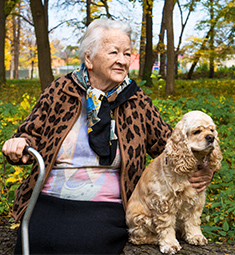
Just write out a simple statement that says you have asked so-and-so to take your dog in the event of your death or incapacitating injury. Include the person’s contact information or other identifying information so your executor doesn’t have to figure out which of the 75 million John Smiths in the world is the one you have designated.
Indicate whatever plans you have made as far as paying for the dog’s care and then sign it. Keep a copy with your will and other important papers, a copy where someone will find it if they come to your house to pick up the dog, and give a copy to the person(s) you have designated to take the dog.
In addition to having a written record, you might also verbally indicate to whomever will be taking care of your affairs that you have a plan in place for your dog. They will likely already have a copy of your will, and should also have a copy of your dog plan.
Doggies Den: Latest Articles
 Homemade Thanksgiving Treats for Your Dog
Homemade Thanksgiving Treats for Your Dog
NUTRITION We all want to include our dogs in our holiday celebrations, but hopefully, you're aware that sharing table scraps with your dog isn't always the best idea.
 Keeping Your Dog Safe during the Summer Months
Keeping Your Dog Safe during the Summer Months
HEALTH Summer is coming on fast, so it’s time to plan how you will keep your dog safe and healthy through the lazy, carefree, warm days.
 Vaccination Time Again-Keeping Your Puppy Healthy
Vaccination Time Again-Keeping Your Puppy Healthy
DOG HEALTH So you have your new puppy picked out. There are quite a few shots, treatments and examinations that will keep the newest member of your family healthy.
 Canine Thanksgiving Feast
Canine Thanksgiving Feast
NUTRITION With the wide variety of food at Thanksgiving dinner, chances are you'll want to give your dog something special, too. If you're contemplating what to feed your dog for the holiday, here is a guide to a great Canine Thanksgiving Feast.
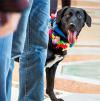 Dog Walking Tips Every Owner Should Know
Dog Walking Tips Every Owner Should Know
DOG FUN Walking your dog is not only crucial to keeping him healthy and happy, it strengthens the bond between your canine friend and his caregiver. There are a lot of obstacles out there. Don’t forget these simple tips to keep your walk fun and safe in the outside world.
 The Benefits of Physiotherapy for your Dog
The Benefits of Physiotherapy for your Dog
HEALTH The same techniques that physiotherapists use to treat a variety of injuries and conditions in humans have been adapted to suit animals with great success. Family pets, show dogs, and working dogs can all benefit greatly from physiotherapy. Dogs whose activities involve a lot of agility are especially susceptible to the types of problems that physiotherapy can address.
 The Decision- Adding a Dog to Your Family
The Decision- Adding a Dog to Your Family
FIRST TIME OWNERSBringing a dog into your family is a decision where many people don’t realize it’s magnitude until after they have the dog. There are a number of things that you need to research before you decide to purchase a dog, and it starts right in your own home.
 Bringing Your Dog Into Your New Baby's Life
Bringing Your Dog Into Your New Baby's Life
HEALTH Many believe that a dog and a new baby cannot happily coexist, so therefore the dog has to go. This is not necessarily the case.  A new baby does not mean you have to abandon your dog.

Doggies Den:
Most Popular Articles

Dog Pregnancy Symptoms
HEALTHIf you suspect your dog might be pregnant, check out part one in this series on pregnant dogs, where we cover pregnant dog symptoms.

Dog Birth
HEALTHIn the third article of our dog pregnancy series, we look at the wonderful, but messy, process of bringing newborn puppies into the world.

Indoor Dog Potties
DOG PRODUCTSIt's been a long day at work. You were so busy, you didn't even take time to eat a sandwich, let alone run home to let your dog out. You're on your way home, knowing the poor dog is crossing his or her legs by now, when your car breaks down, delaying you even further. Can't somebody make this easier?
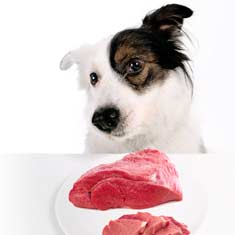
Your Dog’s Digestive System
PHYSIOLOGYEver wonder why your dog eats so fast? Or why he eats gross things? Or why he gets sick to his stomach? Or why his waste stinks so bad? Some of these things are normal, some are not.

Canine Respiratory System
BREATHINGThe basic function of your dog's respiratory system is to bring oxygen in to and remove carbon dioxide from the body. Knowing the symptoms of respiratory diseases can help you help your stay healthy.
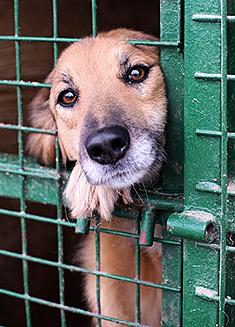
Shelter Dog Adoption Tips for Success
ADOPTION Are you intimidated by the prospect of "rescuing" a dog from a shelter? One reason that you may be wary of adopting a dog from a shelter is not knowing how to choose. Adopting a dog from a shelter can be a rewarding process, if you're prepared to do a reasonable amount of research.
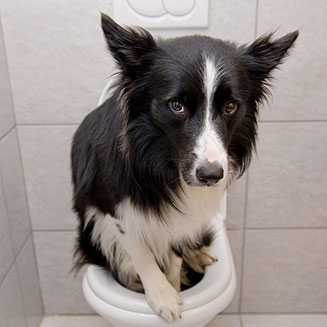
Canine Urinary Tract Infections
SYMPTOMS AND TREATMENTDoes your dog seem to be having trouble relieving his or her bladder? Learn how to recognize the signs of urinary tract infections and how to treat them before they spread.
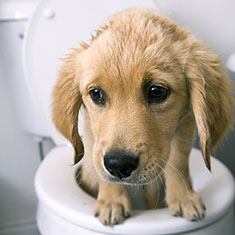
What to do for Dog Diarrhea
SYMPTOMS AND REMEDIESIf you have dogs in your house for any length of time, you have likely experienced at least one bout of dog diarrhea. Beyond the pain in the tuckus involved in cleaning up the mess, you should know what causes diarrhea, and when it's important to see the vet.

What to do for a Dog Bite
DOG BEHAVIOR Getting bitten by a dog can be scary, and you may be tempted to run around in circles for a while, trying to figure out what to do. Here's our guide to help you manage the situation.
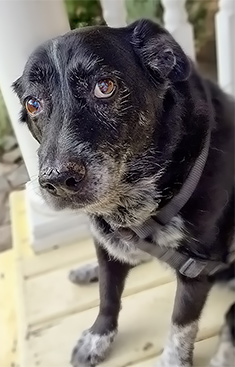
Top Ten Tips for Living with a Senior Dog
DOG HEALTH Bringing home a new puppy is so exciting, but it doesn’t take all that long for your exuberant puppy to grow into a senior dog who may have special needs. Here are the doggies.com top ten tips for taking care of your companion who has been with you through so much.
